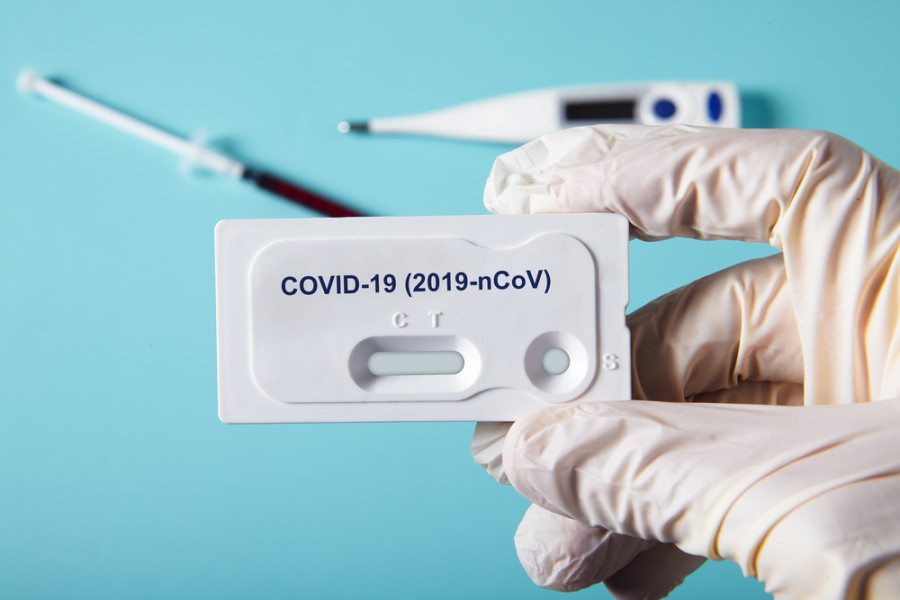Health
Experts suggest using rapid diagnostic kits to minimize risks of Covid-19 spread
The efficacy of the ones that the government has procured, however, has come into question, and officials say the test kits can be used only after they pass the test.
Arjun Poudel
Although the government on Wednesday decided to annul the tender to procure medical equipment from China, 75,000 rapid test kits have already arrived, and if they're found to be efficacious, doctors advise using them to quickly escalate the number of tests conducted.
On Wednesday, the government decided to cancel the tender after questions were raised over the procurement process and the quality of the medical equipment, especially in the wake of a number of European countries recalling Chinese medical equipment for being substandard or defective.
However, the first lot of the equipment, which included the entire consignment of rapid test kits, had already arrived on Tuesday.
The government has dispatched the kits to Nepal Health Research Council in order to ascertain their quality and efficacy. The council will be temperature testing the kits for possible fluctuations in readings, in coordination with the National Public Health Laboratory, according to council officials.
Mahendra Prasad Shrestha, director-general of the Department of Health Services, said that the kits were purchased for use during a possible mass outbreak and the government would store them for an opportune moment.
But public health experts say that large scale testing is the only way to mitigate the risk of the virus spreading in the community, and the rapid test kits, if found to be working correctly, should be used to test as many people as possible.
“No test is 100 percent perfect, even polymerase chain reaction (PCR) tests are not perfect,” Dr Anup Subedee, a senior consultant of General medicine and infectious disease, told the Post. “It is better to perform a PCR test but they're not possible at all places and conditions.”
A PCR test requires a nasopharyngeal swab, which only specially trained personnel can extract. But a rapid test only requires a blood sample, which any health care professional should be able to draw.
“We should understand the limitations of technology but work out a way to use them best,” said Subedee. “We should tell the public in advance that the result is not a 100 percent correct, and also perform a PCR test on those who test positive on the rapid test."
The World Health Organization has stressed the importance of large-scale testing in identifying outbreaks and limiting their spread. But the Nepal government has so far only conducted 1,184 tests, out of which six have tested positive.
But with a limited number of test kits, even those who might have been in contact with patients are being turned away without being tested. Tests are also not being conducted on those who've returned from abroad.
Nepal has yet to report a case of local transmission, with all Covid-19 patients having returned from abroad. All of them visited the hospital on their own, and we're subsequently tested after showing symptoms.
As the government has been claiming that the disease has not spread in the community, rapidly testing large numbers of people would confirm that, say doctors.
“We have to mitigate the risk of an outbreak and save our people,” Dr Baburam Marasini, former director of the Epidemiology and Disease Control Division, told the Post.
There are a lot of benchmarks internationally and even developed countries of Europe and Asia have been using test kits approved by other agencies except the World Health Organization. The United States’ Food and Drug Administration recently approved the use of a two-minute coronavirus test developed by the company Bodysphere.
Marasini said that point of care testing by use of rapid diagnostic kits needs time, and the government should roll out quality approved kits to lessen the risk of spread of disease from asymptomatic cases. He however, said that quality of ktis purchased by the government should be ensured first before its use.
A number of European countries, including Spain, the Netherlands and Turkey, recently recalled thousands of pieces of Chinese-made medical equipment, including testing kits and face masks, for being defective or sub-standard.




 10.21°C Kathmandu
10.21°C Kathmandu















